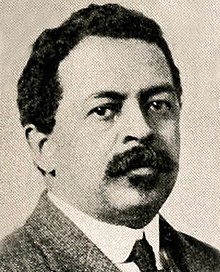
William Monroe Trotter
One of the most unsung heroes of the black community was William Monroe Trotter. A lot of people don't know who he is, but he was one of the most important African American leaders in history. His life spanned years after the end of the American Civil War and ended just before America's overt involvement in World War II. I only knew of him a few years ago. He lived from April 7, 1872 to April 7, 1934. He was an activists for long decades. He worked as a newspaper editor and a real estate businessman based in Boston, Massachusetts. As an advocate for African American civil rights, he never backed down. He protested against Jim Crow apartheid. He revealed many class and ideological differences in the black community back then. For example, some (not all) of the super wealthy and upper middle class black people looked down on the poor or working class black people. He contributed a lot to the NAACP or the National Association for the Advancement of Colored People. He was the founder of the Boston Guardian. This was an independent African American newspaper. It is not a secret that he disagreed with Booker T. Washington. Even I disagree with Booker T. Washington on some issues. We know what those issues are. Yet, to this credit, Booker T. Washington (before he passed) became more militant in supporting voting rights and civil rights for black people. Washington privately gave funds for legal challenges to segregation and disfranchisement (in the case of Giles v. Harris).
William Monroe Trotter was an unsung leader for political agitation in order to fight for equality and justice. Trotter followed the view that liberal arts education and protests for change can lead into progressive results for African Americans. Trotter fought against the racist film The Birth of a Nation. Trotter fought for anti-lynching legislation. His wife stood with him every step of the way in his cause for freedom and liberty. His legacy is intensive. He wrote constantly, he defended the Scottboro Boys, and he is the living witness of the power of the African way of thinking. We salute his contributions to the black freedom struggle.

His Early Life
William Monroe Trotter had an interesting life. He was the third child. He was the first one to survive infancy. His parents were James Monroe Trotter and Virginia Isaacs. His father was born in slavery in Mississippi. James' mother named Letitia was enslaved. Letitia's father was her white enslaver Richard S. Trotter. Letitia, her son and two daughters were freed. They left to Cincinnati, Ohio. They lived in a thriving free black community. James worked as teacher. Later, he was enlisted in the United States Colored Troops during the American Civil War. He was the first black man to be promoted to lieutenant in the 55th Regiment of the Massachusetts African American Volunteer Infantry. Virginia Isaacs was born free in 1842 at either Ohio or Virginia. Her mother Ann-Elizabeth Fossett was born into slavery at Monticello. She was the daughter of Joseph Fossett and Edith Hern Fossett. She was the great granddaughter of Elizabeth Hemings. Virginia's father was Tucker Isaacs or a free person of color. He purchased the freedom of Virginia's mother or Ann-Elizabeth Fossett. The family moved into Chillicothe in the free state of Ohio. Virginia grew up into a thriving black community. It was in Ohio where she met and married James Trotter. The Trotters moved from Ohio to Boston. The Trotters had two more children both daughters after William Monroe Trotter was born. James Trotter protested the inequality of pay between black and white Union soldiers.
In Boston, he was the first man of color to be employed by the Post Office Department or the U.S. Postal Service. He left the job after facing discriminatory Republican-led federal government party. James Trotter was a political person. He was the Recorder of Deeds for the District of Columbia when Grover Cleveland was President. William Monroe Trotter was educated by the political activist and African American Archibald Grimke. He was a valedictorian and president of his high school class. His high school was Hyde Park High School (a mostly white school). He went into Harvard University. He earned a bachelor's degree magna cum laude in 1895. He had his Masters in 1896. He promoted the temperance movement as he never drank alcohol. He was in the Total Abstinence League that was anti-alcohol. He considered to be a minister as he was active in the Baptist church.

His family
William Monroe Trotter worked in the upper echelons of African American society in Boston. Many people in that world had ancestors who were free before the American Civil War. He belonged to an exclusive literary society that met at the home of Cambridge educator Maria Baldwin. On June 27, 1899, Trotter married Geraldine Louise (“Deenie”) Pindell (1872-1918). She was part of an activist family too. He had known her since childhood. She assisted him throughout his career until her death in the 1918 flu pandemic. The couple had no children, but they loved each other a great deal.

Fighting for Justice
Trotter worked in many jobs. He worked in banking and real estate. Yet, he did clerk work. By 1898, he worked at a white owned real estate firm. He started to open his own business to sell insurance and brokering mortgages. He was not active in fighting for civil rights in the early years. Yet, he had strong views on promotion racial equality. This is evident in an 1899 paper in which he called on African Americans to seek admission to institutions of higher learning. Back in the day, many people wanted African Americans to not have higher education but only go into industrial training programs. There is nothing wrong with industrial work, but black people are diverse. Trotter's business was successful. He was able to purchase investment properties. He disagreed with the accomodationist policies of Booker T. Washington, who was the leading founder of the Tuskegee Institute back in the 1890’s. Washington's policies were enshrined in the Atlanta Compromise, outlined in an 1895 speech he gave in Atlanta, Georgia. He said that Southern African Americans should not agitate for political rights (such as the right to vote and equal treatment under the law) as long as they were provided economic opportunities and basic rights of due process. Washington actively promoted the idea that African Americans, once they had proven themselves as productive members of society, would be granted full political rights. As history teaches us, life doesn't work like that. Change is not granted by time, but by action.
Trotter, Grimké, W. E. B. Du Bois, and other northern radicals disagreed with these ideas, arguing that it was necessary for African Americans to agitate for equal treatment and full constitutional rights, because doing so would bring other benefits. Even though I disagree with Booker T. Washington on the Atlanta Compromise speech and his capitalist views, I don’t view him as a traitor. He was a man whose immediate ancestors were slaves. I felt that he sincerely believed that his views were the best policy for his view (as Booker T. Washington lived under the tyranny of Jim Crow). Booker T. Washington wasn't wrong in everything that he has said. He was right to advocate farming, industrial work, and economic development. Likewise, we can do these things and agitate for political and social justice at the same time. Also, Booker T. Washington became more militant just before his death by funding anti-Jim Crow efforts. By the turn of the century, African Americans in the South had been effectively disfranchised by violence around elections, and restrictions in voting registration rules, and, finally, constitutional amendments or new constitutions in southern states. Trotter believed that Washington’s view was leading to an increase of racism in Boston. "The conviction grew upon me", he wrote, that his business successes could be endangered "if race prejudice and persecution and public discrimination from mere color was to spread up from the South and result in a fixed caste of color.”
His Disagreements with the black Bourgeoisie (or the establishment)
By the early 1900’s, Trotter saw that racial segregation was increasing in Boston. Many hotels, restaurants, and other public establishments refused to serve African Americans. This discrimination was rising. Trotter wanted to take the message of racial justice beyond just Boston. So, he spoke out in favor of freedom across New England. He organized protest meetings in 1903. William H. Ferris came to Washington, D.C. after being urged to do so by Trotter. Ferris gave a presentation that criticized Booker T. Washington on January 6, 1903 at Washington, D.C. The truth is that Booker T. Washington was half right. He was right that there is nothing wrong with black people doing farming, industrial work, and using economic development. He was wrong in excluding or minimizing intellectual development, social activism, and other political means to enact justice. Also, Washington was in error to ally with many industrialists and racists with his Atlanta Compromise speech. Ferris gave his speech in front of the Bethel Literary and historical Society. Richard W. Thompson spoke in support of Washington as he replied at the Second Baptist Lyceum on January 25. Jesse Lawson did the same on February 3, 1903. In 1999, Jacqueline M. More argued that Thompson’s paper failed to hold his round against Ferris, who was present at the talk. Trotter wanted policy changes at the National Afro-American Council. That was a national level organization of African Americans. They had a meeting at Louisville, Kentucky. Trotter wanted more activism resolutions. Booker T. Washington supporters or Bookerites controlled the council. They defeated the resolution.
In the Guardian, Trotter criticized Washington. His attacks were personal and harsh, which I disagree with. You can disagree with a man without personal attacks. This was when the Great Migration of African Americans grew. Back then, most black Americans lived in the South. Black people had their voting rights violated. This situation would continue until the 1960’s. Booker T. Washington, before he died, in fact secretly funded legal challenges against the voter registration and electoral restrictions. Washington felt that he wanted to do as much as he can in a vicious Jim Crow environment where black people were terrorized. Trotter lived in the North with a little more (not much more) rights existing for black people. Black folks in the North were still subject to discrimination and oppression though. Trotter and his allies wanted to find a more sympathetic forum to criticize Booker T. Washington. When Booker T. Washington came to Boston on July 1903 to speak, a melee broke out. Trotter said that he wanted to ask him questions but that he didn’t organize the violence. The Bookerites press charges against Trotter for disrupting the meeting. Trotter was convicted and spent 30 days in the Charles Street jail. Trotter and the radicals gained more support. Trotter created the Boston Suffrage League in 1903. A New England Suffrage league was founded in 1904 with him being elected president. Washington took legal actions like one libel suit and criminal charges against Trotter. Washington used his network to pressure Trotter’s supporters in their workplaces from government to academic positions. He allowed sympathizers to infiltrate and report on activist meetings organized by Trotter and others. Trotter published the Guardian after his printer dropped out.
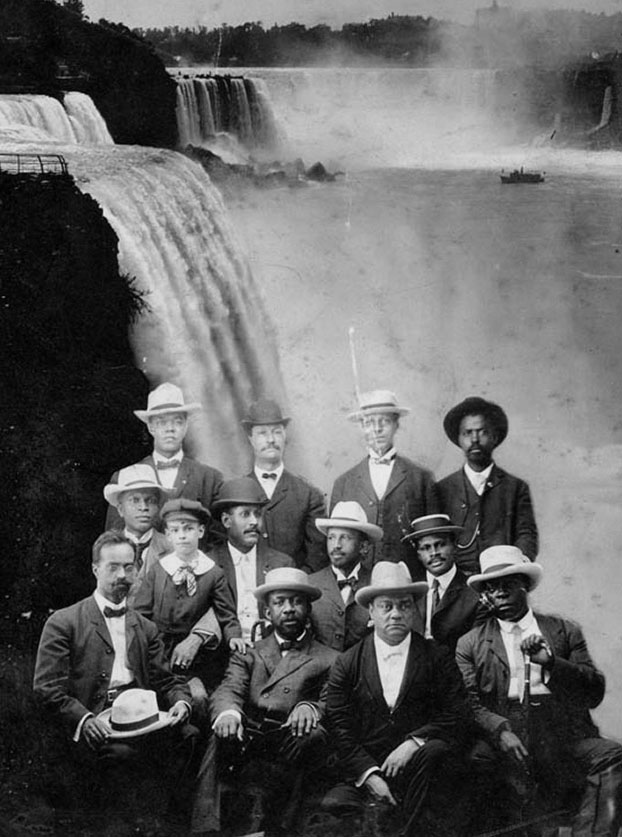
The Niagara Movement and the NAACP
By early 1905, Booker T. Washington wanted to create an umbrella organization to represent all of the major African American leaders of the day. Du Bois and Grimke were the two most radical leaders invited to its early organizational meeting. They later refused to ally with Washington, because they viewed him as dominating the group. Du Bois, Trotter, and two others organized a meeting of radicals from across the nation in western New York. They met in July just across the U.S./Canada border in Fort Erie, Ontario. They founded the Niagara Movement. It was created so that no one man could dominate it. This group espoused a radical declaration of principles which was authored by Trotter and Du Bois. The Niagara Convention wanted equal economic opportunity and the exercise of full civil rights for African Americans. The organization was divided by ideological differences. Washington worked from the outside against its growth. During the early months of 1906, Du Bois disagreed with Trotter. Du Bois wanted women to work in the organization, while Trotter opposed it (Trotter was wrong). Later, Trotter relented and allowed women into the group. Trotter split with Clement Morgan. Morgan was a longtime supporter and Movement member. They disagreed over Massachusetts politics and control of the local Movement chapter. Du Bois allied with Morgan. The Movement met in Boston by 1907. Du Bois reappointed Morgan to a leading position in the organization. Trotter resigned from the Niagara Movement.
The organization collapsed in 1908. Trotter and Du Bois would break up their alliance. Du Bois wrote in 1909 that it was impossible to work with Trotter. The NAACP or the National Association for the Advancement of Colored People was formed in 1909. It had black and white early founders. Trotter and Bu Bois were both present at meeting in 1909. Some of Trotter’s proposals were accepted like to end segregated transportation, but some of his other proposals weren’t like his proposal for a bill to make lynching a federal crime. Trotter was not invited to be on the organization’s executive committee neither was Booker T. Washington, who boycotted the effort. Trotter didn’t have a large role in the NAACP. He competed against the NAACP. Both Trotter’s group and the NAACP held rallies in Boston to mark the centennial of abolitionist Charles Sumner’s birth. Trotter worked with the NAACP for a few years peripherally. He didn’t agree with the amount of white involvement in the group. He rarely contributed to the organization at the national level. He said that the Boston chapter of the NAACP wasn’t radical or courageous enough. He said this to NAACP leader Joel Spingarn.
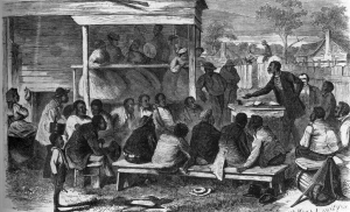
The National Equal Rights League
William Trotter split from the Niagara Movement. He made a conference of like minded activists in Philadelphia on April 1908. He served as the conference chair. He excluded any attendees whose racial ideology he opposed. He opposed those who supported Republican William Howard Taft in the upcoming presidential election. Trotter opposed Taft, because he didn’t like the Republican Party’s laissez faire policies on race. The conference led to the creation of the Negro-American Political League, which eventually became known as the National Equal Rights League (NERL). Trotter described this group as "of the colored people and for the colored people and led by the colored people." NERL, which biographer Fox describes as Trotter's "personal fief", was unable to attract high-profile membership as the NAACP did. Trotter did not want white members, and was unable to work effectively with other African-American leaders. NERL and the NAACP, while both working toward similar goals, regularly feuded over matters public and personal. The NAACP attracted more people and money. Later, the NAACP with more talent was the center of anti-Bookerite civil rights activity. Trotter and the NERL became increasingly marginalized on the left. Trotter would not have as prominent a role in the civil rights dialogue again. By 1921 the League had been reduced to a handful of Trotter supporters.
William Trootter didn’t just oppose Booker T. Washington. He also opposed Theodore Roosevelt and William Howard Taft. Roosevelt and Taft were advised by Washington on many racial issues. African Americans supported the Republicans, because back then the Democrats were overtly in favor of Jim Crow, racist policies. Trotter once supported the southern Democrat Woodrow Wilson in the 1912 election. Wilson had a brief meeting with Trotter and other NERL members. He or Wilson made vague statements about the fair treatment of African Americans. But, he succumbed to pressure from Southerners in his cabinet and agreed to segregate federal offices. The NAACP and NERL (then known as the National Independent Political League, or NIPL) protested, and Trotter secured a meeting with Wilson at the White House in November 1913. Wilson said that his policies were not segregationist, but Trotter characterized Wilson's denial as "preposterous.” Trotter continued his protests, eventually gaining a second invitation to the White House in November 1914. This meeting with Wilson ended with a heated exchange between the two men. Wilson claimed to be dealing with a "human problem" from which politics should be left out, and suggested to Trotter's group that they could always vote for someone else in the next election. Trotter continued to argue that the segregationist policy was humiliating to African Americans. Wilson responded, "If you take it as a humiliation, which it is not intended as, and sow the seed of that impression all over the country, why the consequences will be very serious.”
After Trotter said this was an insult, Wilson angrily ordered him to leave, saying "If this organization wishes to approach me again, it must choose another spokesman ... your tone, sir, offends me." Wilson was a racist, and Trotter woke up to see that Woodrow Wilson never wanted freedom of black people but the status quo. Trotter's second meeting with the President was widely covered in the press, featured on the front page of the New York Times and other leading newspapers. A white Texas newspaper described Trotter as "merely a n___" and "not a Booker T. Washington type of colored man,” and northern papers also criticized him for his "insolence" to the president. The Boston Evening Transcript, while observing that Wilson's policy was segregationist and divisive, pointed out that although Trotter was basically correct, he "offends many of his own color by his ... untactful belligerency.” That is silly, because any black man has the right to heroically stand up fro freedom and justice for black people.

African Americans were divided in their response to the incident: some claimed that he did not represent them, while others, notably Du Bois, grudgingly admired Trotter's audacity. Du Bois wrote that Wilson was "insulting and condescending" in the meeting. Trotter parlayed the publicity into a series of speaking engagements, in which he denied "that in language, manner, tone, in any respect or to the slightest degree I was impudent, insolent, or insulting to the President." The truth is that William Trotter had every right to talk to Wilson in that way. Black folks back then were lynched, assaulted, raped, and faced terror by white racist mobs. Then, you have some male like Woodrow Wilson downplaying that reality. Trotter acted like a man when he stood up against the bigotry of Wilson. Trotter continued to oppose Wilson’s segregationist policies. During WWI, Trotter didn’t want a segregation of officer training facilities. With his influence, the recruitment of black people in the Boston area was lower than expected. During the time of World War II, the military integrated the officer corps, and President Harry Truman afterward completed the integration of the armed services by 1948. After WWI, Trotter wanted to use the 1919 Paris Peace Conference as a means to raise international awareness of the bad U.S. government policy toward African Americans.
He opposed segregation as incompatible with Wilson’s vision of making the “world safe for democracy.” Trotter organized a meeting in Washington, DC related to the peace conference; he and ten other African-American delegates were chosen to attend the peace conference. The State Department refused to issue passports to those delegates, or to African Americans planning to attend a Pan-African Congress that Du Bois was organizing to be held concurrently with the peace conference in Paris. Du Bois and other African Americans were supporting African colonies' desire for independence. To get to Europe, Trotter posed as a seaman seeking work in New York, and got a job as a cook on the SS Yarmouth to gain passage to France. He arrived in Paris alone and with little more than his cook's clothing, only to find that the principal peace negotiations had already taken place. The powers did not include any statement of racial equality. Trotter attracted the French press in his accounts of racial mistreatment in the United States, but he could not gain access to any of the official delegations to the peace conference. He also missed Du Bois' Pan-African Congress, which was held in February 1919 while he was still seeking passage.
By the time Trotter came back to the United States on July of 1919, he learned of the race riots against black people across major cities and towns in America. There were postwar economic and social tensions that grew. Black people did fought back via self defense against white racist violence in places like Chicago and Omaha. Trotter supported active resistance to white on black violence. He wrote, “Unless the white American behaves, he will find that in teaching our boys to fight for him he was starting something that he will not be able to stop.” His writings prompted calls in Congress for the censorship of the Negro press: South Carolina Congressman James F. Byrnes accused Trotter of "doing his utmost to incite riots and bloodshed.” Massachusetts Senator Henry Cabot Lodge gave Trotter a chance to testify during Senate deliberations on ratification of the Treaty of Versailles, which Lodge opposed on grounds other than Trotter's. Lodge's opposition was successful: the Senate never ratified the treaty. William Trotter continued to fight for freedom and justice.


His Continued Advocacy
William Trotter created a campaign against Thomas Dixon’s play The Clansman when it opened in Boston in 1910. The play was racist as it glorified the Klan during Reconstruction. His protests succeeded in closing the production. While he was on a speaking tour in early 1915, he learned that D.W. Griffith’s movie, The Birth of a Nation, adapted from the Clansman, would be opening in Boston. He rushed back to lead protests against the film. In April of that year, the Tremont Theater denied Trotter and a group of African American tickets to the showing. When they refused to leave the lobby, plainclothes police moved in, sparking a scuffle. Trotter and ten others were arrested; other protests took place both inside and outside the theater. Trotter, united with other factions of the African-American community, tried but could not get the film banned in Boston. This united front, along with the death later in 1915 of Booker T. Washington, reduced for a time the internal hostilities in the Boston African-American community. The KKK had a revival for a decade after 1915, especially in industrial cities and the Midwest. In 1921, Trotter was successful in shutting down new screenings of The Birth of a Nation in Boston; he allied with Roman Catholic organizations, who objected to the KKK's anti-Catholic stance of the 20th century, and were strong in the city as a result of extensive Irish and Italian immigration. Very sad news was when Trotter’s wife died in the 1918 influenza pandemic. She was a partner in all of his activities, and he missed her greatly. He was never the same after his wife died.

Later Years
By the 1920’s and the 1930’s, Trotter lived in poverty. He used the Guardian as a means to protest injustice. He lobbied for anti-lynching bills in Congress, with limited success. Even when the House overwhelmingly passed such a bill in 1922, the Southern bloc in the Senate filibustered and effectively killed passage of the bill for three years running. (White Democrats effectively controlled nearly all the Congressional seats apportioned to the total population of the South, after having disfranchised black people). They controlled chairmanships of numerous important committees, which were established by seniority. In 1923, Trotter eventually came to an uneasy truce with the NAACP. His attempts to promote his style of activism, however, were eclipsed by activities of younger leaders, such as Marcus Garvey, a Jamaican immigrant in New York City and leader of the UNIA. He continued to write in the Guardian about incidents of racial injustice like the 1931 trials of the Scottsboro boys. They were accused of raping two white women in Alabama. These people were innocent. On the morning of April 7, 1934, his 62nd birthday, William Monroe Trotter died after a fall from the roof of his home in Boston. The cause is uncertain, but it is known that he was depressed and troubled at the time. He may have committed suicide. It is a sad end to a life of fighting for justice.
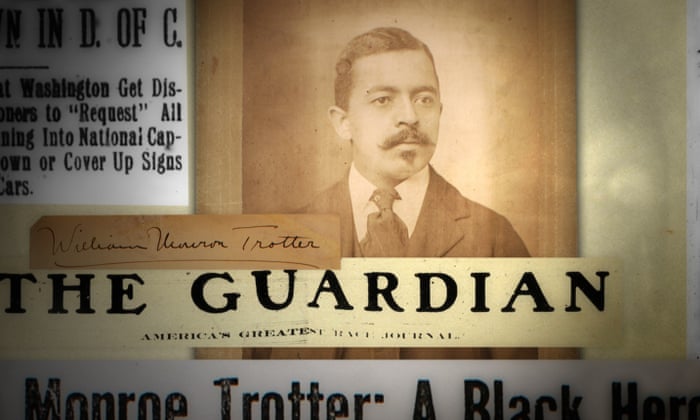
Trotter's Legacy
William Monroe Trotter lived a short life. Yet, his impact on black American history and history in general can never be understated. He was part the same era of Booker T. Washington, Ida B. Wells, W.E.B. DuBois, Mary McLeod Bethune, and other black leaders who risked their lives for our freedom. Trotter was an unsung civil rights activist who lived in the transitional age after Reconstruction but before Brown v. Board of Education decision. He saw the first Great Migration and the Harlem Renaissance. He witnessed many changes in the African American community. Also, Trotter witnessed the nadir of racial relations in the 20th century when black people were lynched, black women were raped (even in broad daylight not just at night) by white racists, black children were abused by racists, and rioting by racists ruined the lives of thousands of innocent black human beings. It was a time of outright war against black human life. Our existence was threatened by Woodrow Wilson, racist Congressmen, and by legal policies that stripped away voting rights, economic rights, and other human rights from our ancestors. That is why Trotter became militant in his views. He stood up like a man to Woodrow Wilson when Wilson wanted to downplay the serious matter of racial oppression. William Monroe Trotter inspired the NAACP to be more progressive on its policies. He never gotten over his disagreements with Washington and DuBois.
Ironically, both Washington and DuBois, before their deaths, became more progressive in their views. William Monroe Trotter isn't remembered that much in our generation but now it is the time to recognize his life and contributions to the overall black freedom struggle. From chains to being political leaders, we are still here. From being kidnapped to organizing many institutions, we are certainly still here. This journey for us hasn't been easy. Yet, we overcame challenges not because they are easy. It is because it is hard. The essence of black cultural strength is about creativity, diversity, resiliency, strength, and innovation in our intellects plus our various forms of human expression. In that sense, we bless ourselves and bless the world with our gifts. He was only 62 when he passed away, but his life was filled with the desire to see our people triumphantly free. He so loved his wife, Geraldine Pindell, as it is always a blessing for a man to love his wife. Today, there is the William Monroe Trotter Institute at the University of Massachusetts Boston (which is a research institute for the study of black history and black culture). Trotter's first home in Dorchester, Massachusetts was designated a National Historic Landmark in recognition of his significant contribution to the civil rights cause. We are inspired to carry on the tradition of standing up for human liberation.
Rest in Power Brother William Monroe Trotter.
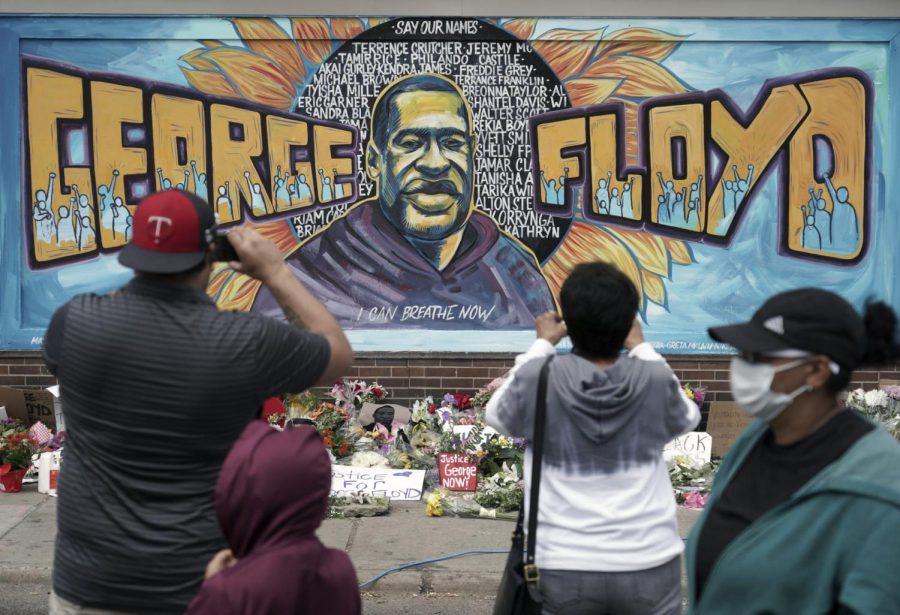
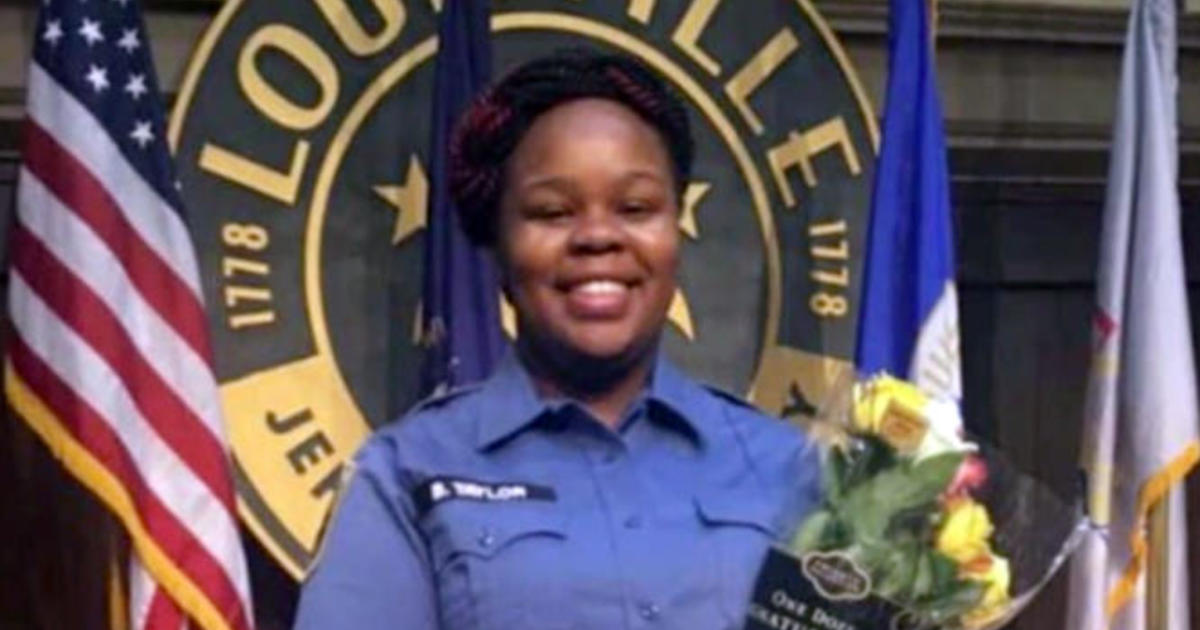
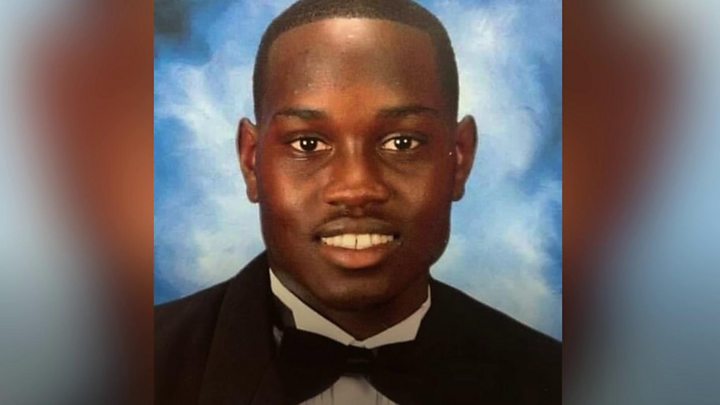
George Floyd, the Fight against Police Brutality, and America in Crisis
In the United States of America, we have lived in a time of crisis for centuries. What happened for the past few days is not new. What is new is that new technologies have recorded what we have always condemned: police brutality. Black people have experienced massive injustices. From the 1500's to our time, black people in the Americas were victims of the Maafa, slavery, Jim Crow, the prison industrial complex, police terrorism, and other evils. To this very day in 2020, you have racists who don't view black lives as important, and you have those who defend police injustice unconditionally (which is wrong too). In America, the recent unjust deaths of 3 black Americans (whose names are George Floyd, Breonna Taylor, and Ahmaud Arbery) have caused an uprising of pain, demonstrations, and an awareness that capitalist exploitation has no place anywhere in the Universe. We have black people who have warned America that this would happen. Dr. King warned people, Malcolm X definitely warned people, Ella Baker warned folks, and other heroes warned the world about the evil of racism. Racism is terrorism, poverty is terrorism, and the murder of innocent black life is terrorism. That is why there are evil biases and a militaristic mindset in certain segments of police culture. These racists talk about black culture (and black culture is about the arts, literature, music, inventions, STEM fields, athletics, etc.), but they refuse to analyze police culture. Centuries ago, the slave patrols of the South were the police to oppress black people. By the 1960's, crooked cops used dogs and water hoses to harm not only black adults, but black children in vicious fashion in Birmingham, Alabama. Tear gas and batons seriously injured peaceful protesters in Selma 55 years ago in 1965. Systematic racism and class oppression are realities as validated by tons of sociological studies. George Floyd of Minneapolis, Minnesota turned his life around to be a better man.
4 officers were involved in his death on May 2020 on Memorial Day. One officer placed a knee on his neck for over 9 minutes which caused his passing. Immediately, the outrage over such a barbaric act of murder has been condemned by us black people, by people of every color, and by people from across the political spectrum. This is a rare time, because when you have even conservatives condemning the murder of George Floyd, you know something is wrong with the system of the status quo. Thousands of people in America have been involved in heroic, heavily multiracial demonstrations against police state violence. This presentation of working class unity is certainly part of a new era, and it showed that the younger generation includes the most progressive generation of human history. Terrible conditions made what we see a reality. The protests, the rebellions, and the anger didn't exist ought of thin air. The horrendous conditions have been boiling after centuries of oppression against people of black African descent in the Americas, the harm of democratic rights done by the neo-fascist Trump administration (plus done by previous administrations), the spread of the coronovarius, the criminal injustice system, police terror in communities of color (especially in the black community), the economic disaster that we witness today (with over 40 million Americans without jobs), economic oppression, the crisis of our health care system, and racial injustice. The thing is that we, who are black Americans, predicted this. We know that the destruction of innocent property and harm to innocent human life is wrong. We know that a small group of people are agent provocateurs from the Bugaloo boys and other groups who seek chaos not true civil rights.



Yet, we embrace the nuisance of how a rebellion represents the language of the unheard, and for long centuries, the cries of black people in America have been maligned, ignored, and disrespected. Now, we have no excuses. There must be real change. There are no other options. We have seen the videos, we have witnessed the hurt of the victims, and we are outraged at centrism. Reactionary extremism is repugnant, but centrism has permitted the status quo for decades. Now, we witness that only revolutionary, systematic change is necessary in establishing justice for all. Trump is a hypocrite. Donald Trump condemns Antifa as a terrorist organization, but Trump has verbally praised neo-Confederates and white supremacists at Charlottesville. Trump has praised far right armed militia groups who spew profanity and threats at the police in the Michigan statehouse with semiautomatic weapons. His recent Tweets (which harkens back to racist 1960's rhetoric about protesters) has provoked violence by saying that looters will cause shooting. Trump has also reversed consent decrees. That reversal make it harder for crooked cops to be held accountable for their actions. Dr. Martin Luther King Jr. in his March 14, 1968, "The Other America" speech gave these words while he was in Grosse Point, Michigan (at Grosse Point High School):
"...But it is not enough for me to stand before you tonight and condemn riots. It would be morally irresponsible for me to do that without, at the same time, condemning the contingent, intolerable conditions that exist in our society. These conditions are the things that cause individuals to feel that they have no other alternative than to engage in violent rebellions to get attention. And I must say tonight that a riot is the language of the unheard. And what is it America has failed to hear? It has failed to hear that the plight of the Negro poor has worsened over the last twelve or fifteen years. It has failed to hear that the promises of freedom and justice have not been met. And it has failed to hear that large segments of white society are more concerned about tranquility and the status quo than about justice and humanity. Now every year about this time, our newspapers and our televisions and people generally start talking about the long hot summer ahead. What always bothers me is that the long hot summer has always been preceded by a long cold winter. And the great problem is that the nation has not used its winters creatively enough to develop the program, to develop the kind of massive acts of concern that will bring about a solution to the problem..."
We understand that the vast majority of protesters and demonstrators are peaceful, shown courage, and desire righteousness in the world. Minneapolis (like many places of America) have a long history of police brutality, racial injustice, and economic inequality. That is why even one police chief tried to confront the racism in his own Minneapolis police Department. That is why the person who murdered George Floyd (the murderer is Derek Chauvin) has been cited over a dozen times over allegations of police misconduct. According to NBC News, the Minneapolis police rendered dozens of people unconscious with neck restraints over 5 years. Only one man was arrested, and he was charged with 3rd degree murder and manslaughter. Yet, the 3 other officers have not been arrested. That is a disgrace. We witness a dual reality too. One reality is the excessive usage of force by some people (who aren't peaceful protesters) against property (including harming black businesses and a Native American empowerment center in Minneapolis), people, etc. Some folks (who are not peaceful protesters) have destroyed or harmed stores, even pharmacies, libraries, vehicles, a church in Washington, D.C. etc. Some have used unwarranted vandalism. We have seen this in Los Angeles, Chicago, Philadelphia, Miami, etc. That is wrong.
Also, there is the reality of how some police authorities have harmed innocent people, protesters, and the press via tear gas and rubber bullets. One example in NYC, where NYPD SUVs ran over innocent people who were just protesting. De Blasio made controversial comments about the NYPD for the SUVs running over people. `De Blasio's daughter demonstrated for justice, and she was arrested. A video shown police marching behind a National Guard Humvee screaming for people to go inside and yelling "Light 'em up" as they fired rubber bullets on a group of young people gathered outside their home. An elderly white man was shoved to the ground by riot police in Salt Lake City. He was walking in a cane. In Sacramento, California a young black man was bleeding greatly after being shot in the head. A young black Atlanta couple was tased and pulled from their car by dozens of riot police in Atlanta. This came after they slashed their tired and broke out the windows. Two officers were fired by the police chief and the mayor of Atlanta, who is Keisha Lance Bottoms. A young woman in Dallas was shot by a rubber bullet in the head. A child in Seattle was pepper sprayed in the face. MSNBC anchor Ali Velshi was shot in the leg with a rubber bullet while reporting live in Minneapolis. In Louisville, a local TV report and her cameraman was targeted and shot with pepper balls during protests Friday. A freelance photojournalist in Minneapolis was permanently blinded in her left eye after being shot by the police with a rubber bullet. Lucas Jackson was shot with rubber bullets when he is a reporter too. The Associated Press reported that more than 4,100 people have been arrested since Thursday. CNN host Omar Jimenez (who has a black mother) has been unjustly arrested, and he was released hours later. Some National Guard people fired tear gas and rubber bullets at protesters and media people. These events are real.


We won't forget that protests for the dignity of George Floyd and for the humanity of black people (in opposition to police brutality) have existed in Paris, London, Amsterdam, Rio (in Brazil), Syria, and throughout the world. This is a global fight for justice.
The overall point is that our eyes must be on the prize. The truth is that a black man, whose name is George Floyd, was murdered while saying that he can't breathe, and he called for his mother when his mother passed away before. Black people are certainly in pain over this injustice. There is no solution without strategy, leadership, organization, mobilization, solidarity, and political plus economic policies to build up a better world. Some want us to vote. I have no problem with voting, because we can get rid of corrupt cops, judges, prosecutors, and other political leaders via voting. Yet, that is not enough. We need new laws in every level of government to eliminate police terrorism. We need changes in public policies. We desire investments and a change in the mindset of the world society. Massive protests have been in Minneapolis, St. Paul, Houston, Atlanta, Norfolk, Los Angeles, Salt Lake City, Chicago, Louisville, Washington, D.C. Boston, Dallas, Kansas City, St. Louis, Omaha, Columbia (in South Carolina), Denver, Sacramento, San Francisco, Miami, Las Vegas, Fort Wayne, Detroit, Grand Rapids, Indianapolis, etc. We are all in unison in wanting to be free. It should be no crime for us to be black. We are opposed to social inequality, austerity, endless wars, mass unemployment poverty, health care disparities, and other evils that plague the world. A long term solution can never be the continued mobilization of National Guard forces.

In this class struggle too, the super rich have handouts in the trillions of dollars spanning decades while we deal with the worst economic crisis since the Great Depression. Many ordinary people have cleaned up debris from the events of the previous days, have came together to promote justice, and gone out of their way to defend black human lives. This is the largest uprising of protests in America since 1968. Protesters have marched outside the U.S. embassy in London at Trafalgar Square. We want peace, but there can be no peace without justice. A lot of information is coming out. One investigator sworn under oath about the events relating to Ahmaud Arbery's tragic passing. The investigator and Assistant Special Agent in Charge Richard Dial testified that Bryan told the police that Travis McMichael called Arbery a racial slur (after he killed Arbery with 3 shotgun blasts). McMichael had a Confederate flag sticker on the toolbox of his truck. Text messages show that McMichael used the slur constantly. Dial said that the 3 males involved in the situation chased him before Arbery was shot. A truck hit Arbery.
Right now, every officer, involved in the brutal murder of George Floyd, has been charged. There is the upgrading of the charge against Derek Chauvin (who put the knee on the neck of George Floyd for over 8 minutes) to second degree murder. The other 3 officers have been charged with aiding and abetting second degree murder. Minnesota Attorney General Keith Ellison is confident that he will get a conviction for all of those involved. We shall see. The good news is that all 4 officers were charged. Yet, we have a long way to go in seeing real justice for the family of George Floyd. This will be a long journey, but this first step of charging these crooked cops is a necessary step. In America, we have had enough. Enough is enough. We don't want to see any of our Brothers and our Sisters killed period. Police brutality is wrong, and it has no place anywhere in the Universe. Massive protests are existing now in Los Angeles, New York, Atlanta, Boston, Philadelphia, Minneapolis, and other places of America. This fight for justice is not easy, but the younger generation has shown the world that justice is our only course. Today, people from other backgrounds increasingly are finally waking up to witness the fact that piecemeal change will never cut it. Only structural, revolutionary change matters in the development a system of justice beneficial for all. Trump invoking George Floyd to talk about economic numbers when the black unemployment has increased now shows his callous character and sociopathic mentality. Trump has refused to fight police brutality in our land by stripping consent decrees. Trump has no shame in his assaults on American liberty and American democracy (by rejecting subpoenas, calling protesters terrorists, desiring to lessen libel laws, threatening to use the military on American streets, etc.). Polls show that the majority of Americans support the protests in America, and they disagree with Trump's response to this whole situation. We have seen demonstrations in favor of black human rights in London, in Paris, in Berlin, in Copenhagen, in Amsterdam, in Dublin, in Auckland, in Sydney, in Tehran, in Halifax (in Canada), in Idlib (Syria), and in other places of the world. We are living history today.
Today, it is important to recognize the life of the late Sister Breonna Taylor. She was a woman who was a hero and a martyr. Day in and day out, she was an emergency medical technician who saved lives. She worked at 2 hospitals in Kentucky at Louisville. Also, she loved her boyfriend Kenneth Walker. Breonna Taylor loved her family and friends. On March 13, 2020, it would be her last day on Earth. Police used a no knock search warrant to come into her home unjustly. Both Taylor and Walker thought it was a burglary taking place. So, Walker used his gun to use self-defense. Later, the police shot tons of bullets that ended the life of Breonna Taylor unjustly. The officers shot their guns over 20 times. Breonna Taylor asked the people behind the door who is it. The FBI is investigating the situation, and Walker has been free of all charges. Protests continue to pay honor to the life of Breonna Taylor.
Rest in Power Sister Breonna Taylor.
On this day, so many events are coming alive. We know that the 16 year tennis star Coca Guaff made a moving speech at a Black Lives Matter protest. We know that Lebron James once again refuted Laura Ingraham after she defended Drew Brees' original views, but she told Durant and James to shut and dribble when they expressed their views. I know all about Laura Ingraham. Over 15 years ago, I remembered her as supporting the Iraq War and believing in far right causes. Laura wrote to Lebron that she believes that people of diverse political views are God's children, and she wants people to be treated with dignity and respect. Yet, Laura supports Trump, who uses hateful language against women, black people, etc. that doesn't represent true honor. Trump and Barr allowed police forces to use batons, tear gas, and other objects to harm peaceful protesters in D.C. Also, Laura has said bigoted comments for a long time. Also, Naomi Osaka is right to say that she won't just stick to sports. We have legitimate causes that must be talked about and advanced.

Los Angeles is about to defund its police forces. After a 75 years old man was shoved by 2 police officers causing that man to be sent to the hospital, then the 2 officers were suspended in Buffalo. Later, 57 Buffalo officers quit the unit. I'm not shocked. If they can't handle an investigation, they don't deserve to be in the streets as officers in the first place. The 2 officers are now charged with as sult. Even Mattis said that Trump is a threat to the Constitution. The Minneapolis City Council voted to ban chokeholds (and make officers to intervene in stopping police abuse). Esper ordered the remainder of duty troops in Washington region to go back to the home base. Many military leaders have criticized Trump's actions to divide the nation and permitting the U.S. military to fly very low on protesters via a helicopter (using winds to drive out protesters) and allowing police forces to push back and assault peaceful protesters in Washington, D.C. on June 1, 2020. Trump allowing the military to be on the Lincoln Memorial and to drive military vehicles on the streets of Washington, D.C. are wrong, inappropriate, and further shows how Trump is an extremist. Many Confederate statues have been taken down by protesters (and by governmental policies). As we all know, those statues are statues of treason and hate. One street in Washington, D.C. being called Black Lives Matter Plaza outlines a new era of our time on June of 2020.
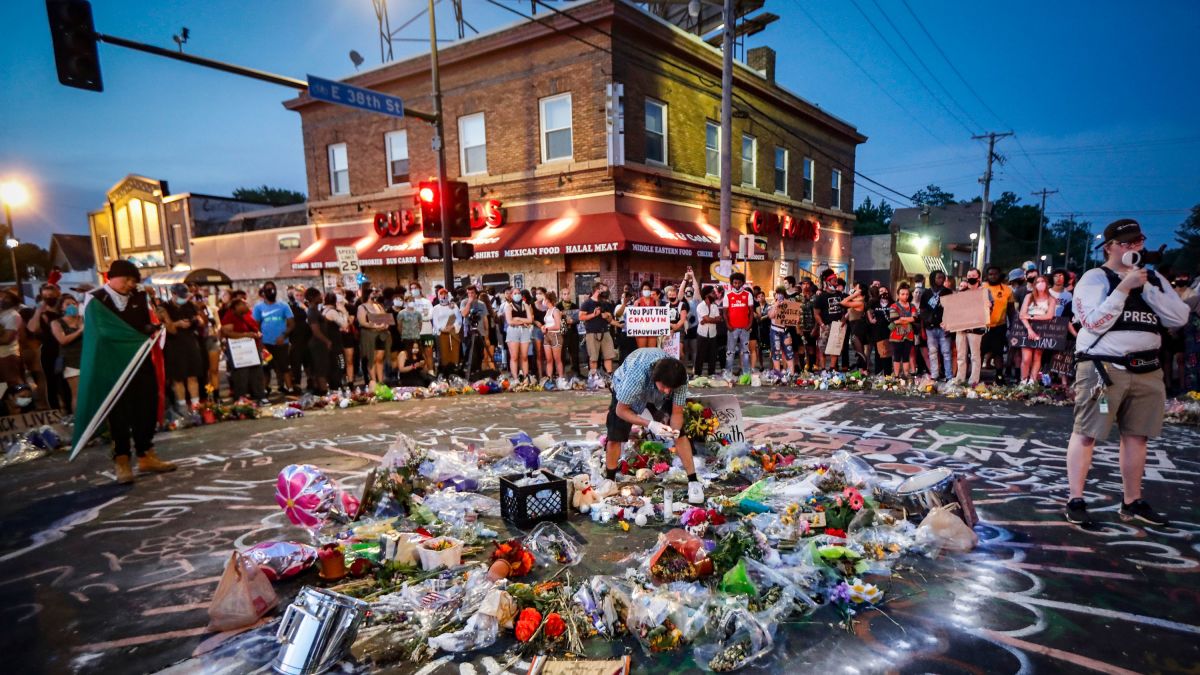

The memorial service in Minneapolis was very emotional. His relatives told stories about the early life of George Floyd, how he washed clothes, and ate bananas and mayonnaise sandwiches. Attorney Benjamin Crump wanted to promote equal protection under the law revolving around the case. Al Sharpton (who called for a march on Washington in August of 2020 to call for policies to deal with racism, the criminal justice system, and policing) gave a powerful address in the memorial service to say that they should keep their knee off our necks. That metaphor rings true. We don't want oppression on our necks. People know the truth. People know that what George Floyd experienced was completely wrong. That is why we have seen massive protests in the streets of America. The service had prayer, many speakers, and many celebrity guests there to give support and honor to the memory of George Floyd. George Floyd was a kind soul who became a greater man as time went on. He loved his family, and God reminds us that his life should motivate everybody to become better people in ending the injustices that harm this world. In my lifetime, I never ever seen this many protests in the streets of America (made up of people of every color) in such a short span of time. It has been 10 days of nonstop protests in tons of cities and towns in every state of the Union. This is more protests than Occupy Wall Street. This reality certainly represents how 2020 will define itself. 2020 is not 1968, but both years do have similarities. We believe in righteousness. Therefore, the best way to honor the memory of George Floyd is to fight for change in our communities, be involved in social change, vote, build in our communities, fight police terrorism, hold evil people accountable, and treat everybody with dignity and with respect.
By Timothy


Like Always, Black Lives Matter.

No comments:
Post a Comment